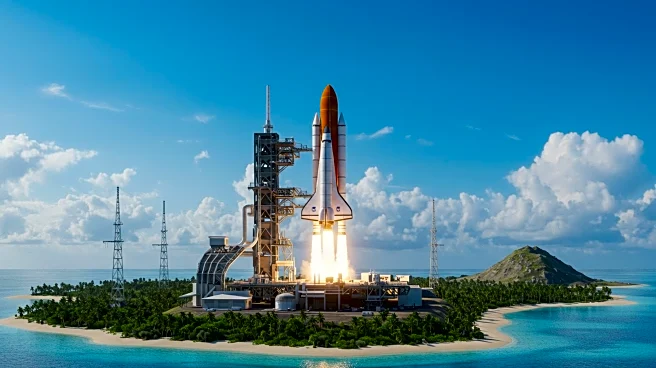What is the story about?
What's Happening?
Portugal's space authority has granted a five-year license to the Atlantic Spaceport Consortium (ASC) to build and operate a launch center on Santa Maria Island in the Azores. This development aims to enhance Europe's autonomous access to space amidst the growing demand for launch facilities. The spaceport will focus on small and medium rockets with payload capacities below 1,500 kg, using non-cryogenic fuels to manage costs. ASC plans to raise funds from private investors, as there is no direct funding from the European Space Agency or the Portuguese Space Agency. The site is strategically located to offer access to various orbital paths and is expected to host suborbital launches starting next year, with orbital flights anticipated by 2027.
Why It's Important?
The establishment of a new spaceport in Portugal is significant for Europe's space industry, as it increases competition and operational resilience. It provides an alternative launch site that can accommodate the growing number of European launch companies. The strategic location of Santa Maria Island offers logistical advantages, such as reduced air and maritime traffic, which simplifies launch coordination. This development could bolster Europe's position in the global space race, potentially attracting more investment and innovation in the sector.
What's Next?
ASC is targeting up to four suborbital launches next year, with plans for orbital flights by 2027. The consortium is in discussions with launch startups in the UK and Germany to host future flights. The business model supports up to six launches annually, with the potential to increase to 14-16 launches with the construction of two launch pads. The success of this initiative could lead to further expansion and collaboration within the European space industry.















